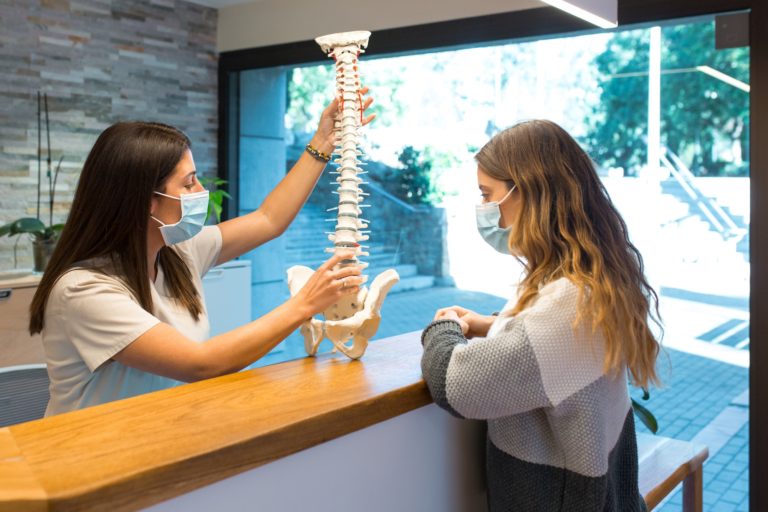The term vasovagal syncope (VVS) refers to fainting caused by a rapid heart rate or blood pressure reduction. A person passes out as a result of a lack of blood and oxygen to the brain.
VVS is also known as reflex syncope or neurocardiogenic syncope by doctors. This syndrome usually happens when the body overreacts to stimuli that cause mental distress and anxiety.
Although a person may experience injuries due to passing out, VVS does not usually necessitate treatment. A diagnosis, however, is required to rule out more serious medical conditions.
VVS develops when the nervous system component in charge of controlling heart rate and blood vessel constriction temporarily fails.
It can occur for a variety of reasons. Among the most prevalent triggers are:
Anxiety and other linked diseases, such as depression, can aggravate vasovagal syncope, resulting in distressing and fainting episodes.
Many people do not do well at the sight of blood and gore. When patients with this fear witness blood in real life or in a movie, their heart rate rises briefly and then falls dramatically, often resulting in fainting.
Because the sight of blood elicits such strong feelings of horror and disgust, it is very common for people with this phobia to refuse necessary medical care, particularly if it involves needles or blood withdrawal.
Orthostatic hypotension, also known as postural hypotension, is a type of low blood pressure that happens when a person sits or stands up from lying down. Before fainting, a person may feel lightheaded and dizzy. Some people, however, may have no symptoms and faint without warning.
In many situations, researchers are unsure what causes a person’s blood pressure to drop substantially after standing or sitting up. However, some potential factors include:
Because of increased pressure in the rectum, someone suffering from severe constipation may faint when passing stool. When the rectum pressure rises, the epiglottis — a flap of tissue behind the tongue at the back of the throat — closes over the windpipe, causing the diaphragm to contract excessively.
This cascade of physiological responses activates the parasympathetic nervous system, resulting in a rapid drop in blood pressure and decreased blood supply to the brain. When the brain no longer receives adequate oxygen, a person loses consciousness and faints.
When a person is in a hot environment, and their core temperature rises to dangerous levels, the body will redirect blood to the skin’s surface to cool itself down and prevent overheating. When combined with dehydration, this response can cause a quick and severe drop in blood pressure, leading a person to faint.
Before confirming a diagnosis of exercise-induced VVS, medical professionals must rule out other life-threatening conditions such as cardiac disease and arrhythmia.
Researchers are unsure what causes VVS during exercise. But they believe the Bezold-Jarisch reflex — a form of inhibitory response that decreases blood pressure — may be to blame.
Vasovagal syncope is not always entirely avoidable. However, by adopting specific lifestyle changes, a person may be able to lessen the number of fainting episodes they encounter. Among these are:
Some people with vasovagal syncope may not notice any warning signs before passing out. Others may experience symptoms such as:
People who encounter these symptoms before fainting should rest in a safe location. Lying down will assist the body in maintaining adequate blood supply to the brain, potentially preventing fainting. It will also reduce the danger of a fall or injury if you faint.
After fainting, a person may experience nausea, lightheadedness, or fatigue.
If you want to help yourself or a family member who has fainted in the past and has ruled out underlying medical issues, you might try reaching out to Jane’s Spinal Care. We work with patients to help them get their spine and body in better alignment. Your spinal cord, housed inside your spine, is the pathway to all communication from your brain to the rest of the body. When that pathway is pinched in some way, it can cause disruptions and issues. These disruptions could lead to VVS and other issues.
When there isn’t anything medically wrong, but you continue to faint, it can be very disruptive to living your life. We work with patients to have a better quality of life by ensuring that their spine and body are in alignment as they were designed to be.
We have certain curves in our spine that, with time, poor posture and sometimes jolting can get lost. These curves are there to ensure that the spine is functioning properly. However, when they are misaligned, we can see a host of health issues.
Patients seek help from our chiropractic office for a host of reasons. Jane’s Spinal Care takes a whole-body approach to ensure that your posture is corrected from your head to your toes. We will evaluate what we need to do to get your spine back into alignment and make you feel better. We have helped patients with VVS in the past and would love the opportunity to help you as well.
When it comes to chiropractic care, you have nothing to lose. We offer a holistic approach to medicine. This means that we can assist you in avoiding medications and surgeries in some cases. While sometimes it is necessary to be on medications or have surgery, oftentimes medical doctors do not use this holistic approach and only treat the symptoms of the problem. We work to find the source of it. Contact us today.

Janes Spinal Care offers personalized care as a part of our full chiropractic services. Contact our team of chiropractic professionals today to schedule your consultation!
Visit Us
850C Wade Hampton Blvd Suite 2-C, Greenville, SC 29609